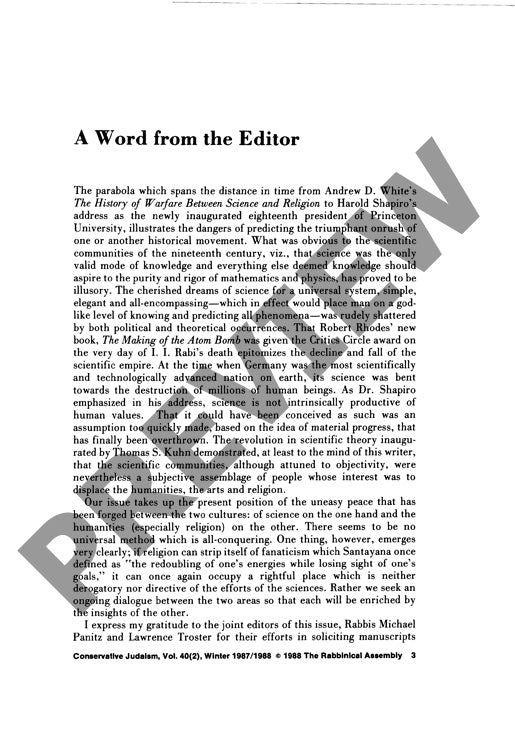A Word from the Editor
Couldn't load pickup availability
This editorial examines the evolving relationship between science and religion from the nineteenth century to the present, challenging earlier assumptions about scientific supremacy. The author employs a historical analytical approach, tracing the trajectory from Andrew D. White's warfare thesis through contemporary developments including Thomas Kuhn's paradigm theory and Harold Shapiro's presidential address at Princeton University. The methodology involves examining key historical moments and theoretical developments that demonstrate the decline of scientific positivism's claims to universal knowledge. The analysis reveals that the nineteenth-century scientific community's belief in science as the sole valid mode of knowledge has proven illusory, with cherished dreams of a universal, all-encompassing system being "rudely shattered by both political and theoretical occurrences." The author argues that Kuhn's revolution in scientific theory exposed the subjective nature of scientific communities, while historical events like Germany's technologically advanced yet destructive science during World War II demonstrated that science does not intrinsically produce human values. The editorial concludes that neither science nor religion possesses a universal, all-conquering method, advocating instead for an ongoing dialogue between these domains where each can be enriched by insights from the other, contingent upon religion abandoning fanaticism.

More Information
-
Physical Description
-
Publication Information
Published 1987-1988
ISBN
-
Publication Credits
David Silverman

